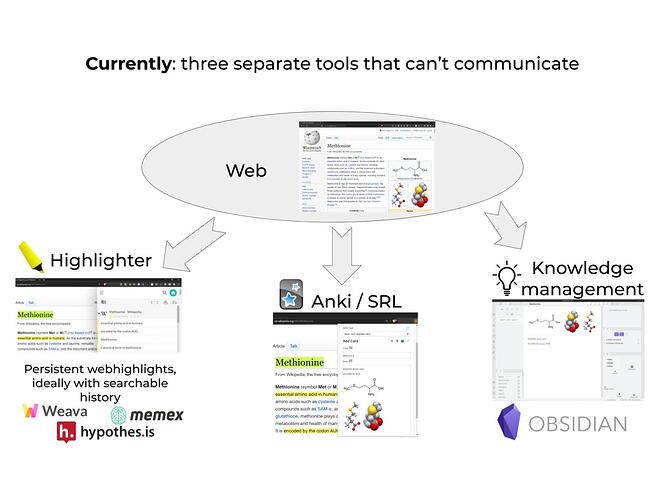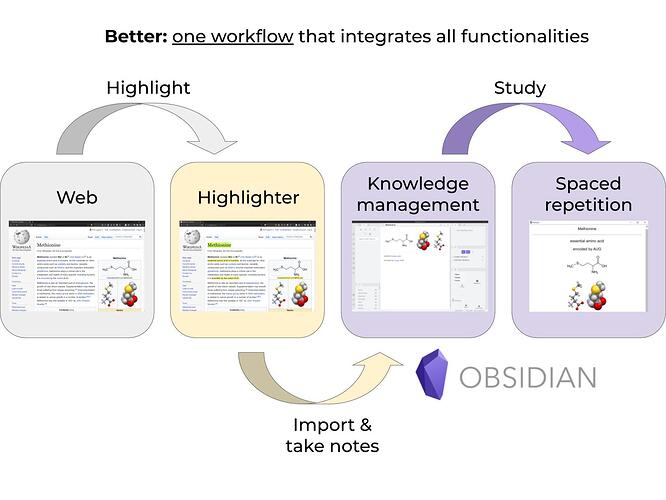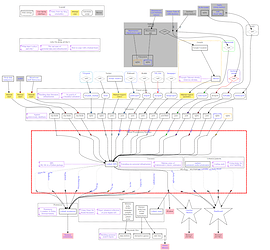My current workflow consists of different tools that can’t talk to each other. I think Obsidian could play an integral role in unifying research, knowledge management and learning.
Research
While researching I take web highlights (currently using Weava, other options: Hypothes.is or Memex) to distill the most important parts of an article or a paper and also to leave a trace on every page for when I revisit it.
In order to work with those highlights (modify, expand upon, add own opinion etc) it is important to export them from the browser extension to a PKM tool. I haven’t found any so far that works with Obsidian or exports to markdown. (Weava is working on integrations apparently).
Knowledge management
This is Obsidian’s bread and butter: backlinks, tags, graph view, search, multipane view → great
Memory
To learn effectively, periodic recall is key. Spaced repetition learning is the best tool for the job whether with OG Anki or any of the clones. There’s a great browser extension for Chrome (/ Edge / Brave) called Anki Quick Adder, that allows creating cards to review directly from a webpage by copy pasting into a little pop up. But of course you notice the redundancy: The information you’d wanna learn you already highlighted with your web highlighter and you already copy&pasted into your knowledge management system. Now you have to enter it once more into yet another workflow.
I think it would be great to avoid this redundancy and be able to feed notes from Obsidian directly into a SLR program to review.
@Pseudonium for example is already working on a plugin:







